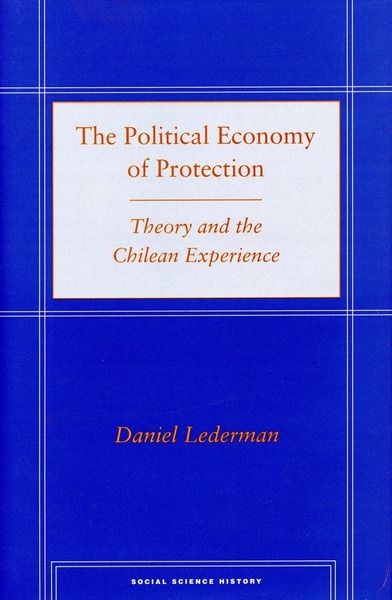
2005
208 pages.
$70.00
Hardcover ISBN: 9780804749176
Ebook ISBN: 9780804767323
The Political Economy of Protection explains why countries, especially developing countries, change their trade policies over the course of history. It does so through an interdisciplinary approach, which borrows analyses from both political science and economics. While the central focus of this book is to explain historical changes in trade policy in one country, Chile, it is broadly relevant for students, scholars, and trade specialists interested in gaining a deeper understanding of the politics and economics of international trade. Given the intensifying public debates about the benefits of globalization, the author provides a uniquely rigorous yet interdisciplinary analysis of the forces that shape trade policy decisions, not just in Chile, but throughout the world.
About the author
Daniel Lederman is Senior Economist in the Office of the Chief Economist for Latin America and the Caribbean at the World Bank.
"[This] book will be an ideal source of information for the reader seeking to learn about the long term evolution of protectionism in Chile."
—Journal of Economic Literature
"In sum, economic historians will benefit from the availability of this succinct overview of Chilean trade policy....Lederman's book is a good contribution that provides some diversity in historical experience beyond the standard studies of European or North American trade policy."
—EH.NET